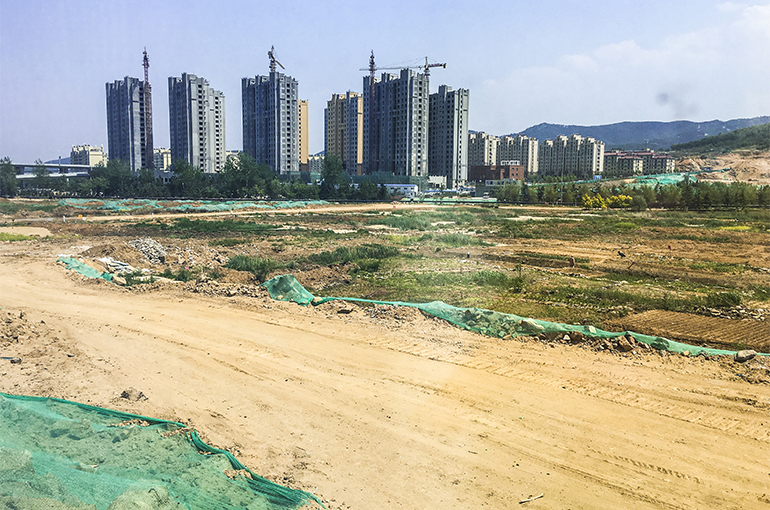 Big Chinese Cities Cut 2024 Land Supply Amid Poor Home Sales
Big Chinese Cities Cut 2024 Land Supply Amid Poor Home Sales(Yicai) April 22 -- Major Chinese cities are decreasing their supply of new land this year amid sluggish sales of real estate.
The supply of residential land is 10 percent lower for this year than last year, according to the 13 key cities that have released their 2024 agendas so far. Most of them are cutting the total supply.
The trend is linked to a slump in new home sales that led to intensified liquidity pressures on real estate developers which lack funds to buy more land.
Among the 13 cities, just central China's Zhengzhou and the northeastern city of Shenyang are expected to boost their supply of land this year due to base effects. Beijing and Chengdu kept their numbers unchanged. But Wuxi, Changchun, Xiamen, and Suzhou all cut their figures by more than 30 percent.
For example, Suzhou intends to sell over 228 hectares of land, and 185 hectares of that is for residential use, marking a new low in nearly a decade and a 63 percent slump from the year before.
In the first quarter, the supply of residential land dropped to 40.3 million square meters in 300 cities across the country, down by around 30 percent from a year ago, according to preliminary statistics from the China Index Academy. Such transactions reached 35.1 million sqm, a more than 10 percent decline. Last year, land transactions fell by 21 percent to 1.3 billion sqm from 2022, marking the lowest level in nearly a decade, the research institution added.
From January to March, sales of property in key cities plunged by as much as 50 percent year-over-year, according to data from China Residence Information Circle. The top 100 real estate enterprises recorded a 48 percent decrease in sales and just 30 percent of them completed new purchases of land.
Builders' willingness and capability to acquire land is waning so local governments may supply fewer new areas for development to manage market expectations and stop prices from falling, Song Hongwei, research director at Tospur Real Estate Consulting, said to Yicai.
The limited availability is also linked to housing policy as the Ministry of Housing and Urban-Rural Development requires local governments to adjust the supply of residential land based on the local destocking cycle of new inventory, Song explained. Specifically, when new homes are not sold for 18 to 36 months, new land supply should be reduced and if sales are poor for 36 months, new supply should be halted.
Editors: Tang Shihua, Emmi Laine